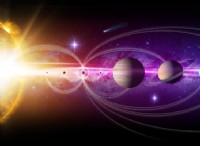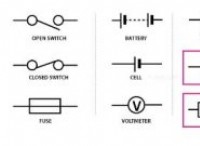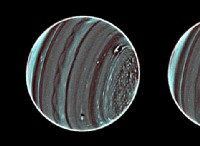Chris Fuchs との最初のインタビューで失敗しました。 Fuchs は、マサチューセッツ大学ボストン校の物理学者であり、量子論の多くの解釈の中で最新かつ最も論争の的となっている QBism の主要な支持者です。それは次のようになります:物理学者が物質と光を構成する電子や光子などの素粒子の挙動を予測するために使用する理論である量子力学は、実際には粒子に関係するのではなく、 信念 理論を使用している人のそれらについて。また、複数の人が同時に使用している場合はどうなりますか?それから QBism は、それぞれが自分の信念だけでなく、自分の 事実 をもつ権利があると言っています。 .
それは 2020 年 8 月のことで、Fuchs と私は Zoom で話していました。彼はふかふかの肘掛け椅子に倒れこみ、金縁の眼鏡をかけ、パンデミックのような長髪をしていた。彼は、私と話す前に QBism について自分自身を教育するように主張し、記事、インタビュー、およびビデオへの 17 のリンクを送ってきました。今、彼は彼のキャリアの逸話に満ちた話をして私を威厳を持っていた.
私と同じ50代半ばのフックスさんは、丸顔でボーイッシュな顔をしています。私の失態は、目の前で顔が熱でワックスのように溶けていく様子からすぐにわかりました。たちまち彼はおしゃべりな人から講師に変身し、複雑な実験室のセットアップの写真を見せて、それについて私を厳しく非難し始めました。 「入ってきて、この実験を何気なくちらっと見た 2 人の男は、実験が何をしているかに同意しますか?」彼は尋ねた。講義は、ホワイトボードにスケッチされた定理で締めくくられました。 QBismについて論争する前にFuchsをもっとよく知るという計画を台無しにしたという理由だけでなく、博士号を含む物理学のバックグラウンドにもかかわらず、とにかく彼の議論に従うことができなかったので、私はずっと自分自身を蹴っていました。 .
実際、私が最初に物理学を学んだ理由と同様に、私の教育も問題の一部でした。私は小学校時代、知的で好奇心旺盛なだけでなく、感情的で衝動的な ADHD の子供で、家庭生活が葛藤と足し合わなかった話の混乱に悩まされていました。クラスのピエロになることが私の最大の野心でした。教師が、週末に 1 年かかるはずの数学のワークブックを完成させたことを発見するまでは。そのせいで代数の授業の後ろで、先生がボード上の方程式をタップしていたので、パニックに陥り、文字に困惑しました。 x って一体何? ひらめきがついに来るまで、私は黙って苦しみました。 X は数字です。まだ知らない数字です。 ユーフォリア!さらに、「x」を超えてさらに多くのアイデアにつながる、さらに多くのドアを含む場所へのドアを開けたという感覚 」数字と記号と幾何学的形状を備えたそのアイデアの宮殿は、すぐに遊び場であると同時に避難所にもなりました。私のすべての「なぜ」の質問に答えがあり、物事が理にかなっている場所でした。私の残りの人生。私は後に物理学に引き寄せられました。それは、宮殿が本物であり、その内部のどこかに隠された 1 つの壮大な方程式であり、私があまりにも魔法的であるために却下した神のように、最終的にはすべてを説明できるというものでした.

フックスと話をする頃には、私は物理学についてあまり目を丸くしていませんでした (大学院でそれを行うでしょう) が、それでも宮殿は私の幸せな場所でした。私は感情が危険であるという教訓を内面化し、対立への嫌悪感と確実性への渇望を発達させ、それが私が人々から一定の距離を保つことにつながりました.たとえば、結婚は長い間、あまりにも遠い架け橋でした。そして、最終的には物理法則に従った粒子にすぎない世界が自由意志を妄想にするように見えたので、私は自分が変化する能力を疑っていました.
同時に、物理学で世界を説明できるという考えには問題があることもわかりました。量子論が粒子を特性ではなく確率で説明する方法のためです。私たちは、物理的なオブジェクトのサイズ、形状、および位置は、それらを構成する粒子の位置によって説明されると考える傾向があります。ただし、量子論では、そのような特性を粒子に帰するのではなく、粒子が現れる確率で説明します。 観測された場合に位置情報を取得する .それでもなお、「観測された」とは何を意味し、観測中に量子論の可能性の闇から特性を具体化し、私たちの日常の経験でオブジェクトが持つ固体形状に何が起こるかは、理論が対処していない問題です.物理学者は、量子論の説明におけるこのギャップを「測定問題」と呼んでいます。
量子論の多くの解釈は、測定の問題を解決すると主張するさまざまな物語を提供していますが、私はそれらのどれにも満足していませんでした. QBism の話は、量子論が現実を直接説明することを否定する伝統の最新のものですが、Fuchs の言うことを聞くと、「現実」が実際に何であるかを理解する可能性がまだあります。 「世界は 6 種類のクォークでできているわけではない」と彼は書いています。 「夢や野望さえ実体のある世界です。」
QBism の量子力学への取り組みは「人生を生きる価値のあるものにする」と言う Fuchs の習慣と同様に、そのようなウーは私の唯物論的な心に赤い旗を立てました。それでも、Nature Physics の論文を含む多くの最近の物理学の論文によって、QBism が真剣に取り組む価値があることは明らかでした。 タイトルは「事実は相対的」。そのようなアイデアを見つけたときは不安でしたが、私はフックスの良い面に乗り、QBist のように自分自身で考える方法を学ぼうと決心しました.
フックスと話してから数週間後、石の多いアディロンダックの頂上で心臓がドキドキし、片膝をつき、ガールフレンドのマルティナのそばかすのある顔を見上げ、彼女に私と結婚するように頼んだ。数日後、私はその話をフックスとメールで共有しました。私が普段はすることではありませんが、彼は 25 年前に、画家ジョージア・オキーフのかつての家であったニューメキシコ州のゴースト牧場での彼自身の結婚式の写真を送ってくれました。彼は 1 週間でキキに恋をし、感情に打ち勝って、少なくとも 1 年は待つと自分自身に約束したにもかかわらず、6 か月後に葉巻バンドで指輪をプロポーズしました。私は自分自身の提案とは対照的であることに気付きました.30年余りの独身生活を経て、このアイデアに慣れるまでに時間がかかりました.2年以上のデートが私のルールであり、4マイルの厳しい山登りがありました.
私は最初のインタビューから立ち直り、フックスと 2 度目の会話をし、彼を個人的に知ることに集中しました。私の QBism への関心が本物であると彼が確信すると、彼はメール、リンク、および哲学が明らかに重要であると思われるウィリアム・ジェームズに関する 4 冊の本を含む読書リストを私に殺到させ始めました。私の QBism 通信講座に散りばめられたのは、あらゆる種類の個人的な逸話と写真でした。ビーチで泳ぐトランクスを着た 20 代のフックス、裏庭の喫煙者と彼が作った輝く肉、誇らしげに巨大な雑草を持ち上げている彼の写真。彼は自分の庭から引っ張った。 「私には内部フィルターがありません」と彼は私に言いました。それでも、大洪水のすべてが友好的だったわけではありません。 Fuchs は私が New York Times Magazine に書いた記事を読みました そして、私が原子物理学者ニールス・ボーアとヴェルナー・ハイゼンベルクの見解を「反現実主義者」とレッテルを貼ることに異議を唱えました。彼はその言葉を「あのいまいましい誤称」と呼び、それらの見解を「行き止まり」と呼ぶ私のコメントは「歴史的記録とは何の関係もない」と述べました。
QBism が Fuchs の赤ちゃんである場合、その祖父に最も近いのは Bohr であるため、私のコメントは刺さったと思いました。ボーアは 1922 年にノーベル物理学賞を受賞した、電子が軌道間をジャンプする必要があるため、 になることはありません 軌道の間。それにもかかわらず、モデルは、水素ガスによって放出および吸収される光の色などの観測された現象を説明し、1925 年にハイゼンベルグは、ボーアの結果だけでなく、他の原子現象も予測する方程式を考え出すことによって、量子論を考案しました。奇妙なことに、ハイゼンベルグの手仕事は純粋な数学的操作でした。彼の方程式は、光の周波数などの観測可能な量のみを参照し、理由を説明できる電子の挙動の記述を避けました。
一方、アーウィン・シュレディンガーは、電子を波として扱うことで、ハイゼンベルグが作ったブラックボックスの内部の働きを明らかにしたいと考えた独自の理論を開発しました。しかし、シュレディンガーが波動関数と呼んだ数学的対象は、現在は量子状態と呼ばれることが多く、物理的な波を彼が望んでいた方法で記述していませんでした。代わりに、物理学者が理論の確率を要約するために使用する標準的なデバイスになりました。アルバート・アインシュタインは、物理学が世界の内部の仕組みを説明できるし、説明すべきであるという彼の信念に常に刺激を受けていましたが、その理論は単に不完全であると考えていました。しかし、ボーアとハイゼンベルクは、これらの展開から得られる教訓は、物理学は別のものを説明するということだと主張した。 「私たちが量子論で数学的に定式化する自然の法則は、もはや粒子そのものを扱うのではなく、私たちの 知識 を扱う」とハイゼンベルクは書いています。 素粒子の。」
「知識」とは、量子状態でエンコードされた情報を意味します。たとえば、特定の原子が観測されたときに特定の場所に現れる確率です。ボーアは、物理学がそのような距離から現実を説明しなければならない理由について説明を提案しました。 「私たちは決して忘れてはなりません」と彼は書いています。
ボーアのポイントは、私たちの観察が変化し、私たちが観察する世界をある程度作成するということでした。これは、シュレディンガーの言葉を使用すると、オブジェクトの観察者とオブジェクト自体が必然的に絡み合うようになることを量子論が示唆する方法によってサポートされています。観察されるのは、オブジェクトそのものではなく、オブジェクト、観察者、および観察方法で行われたすべての選択の一種のマッシュアップです。ボーアは、これらのマッシュアップ (水素によって放出および吸収される光の色など) を「現象」と呼び、量子論は、物理学は世界をそのまま記述するのではなく、そのような現象を記述しなければならないことを教えてくれると結論付けました。彼はまた、世界の「人間の経験」とも言いました。
二重スリット実験と呼ばれる量子的に不可解な古典的なケースに現れるものなど、亜原子粒子の多くの一見逆説的な振る舞いは、この視点で解明することができます。二重スリットでは、電子などの粒子が 2 つの穴が開いたスクリーンに向けて発射されます。ミステリーは、それらが広がり波のように干渉効果を示すこともあれば、点のような粒子のように振る舞うこともあるということです。 .今日に至るまで、アインシュタインは正しかった、量子論は不完全であり、いわゆる「隠れ変数」 (量子力学に現れない粒子特性を意味する) がこの挙動を説明するために必要であると主張する物理学者がいます。
しかし、ボーアは、量子現象の明らかな矛盾は、世界を観察から離れたものとして描写しようとする試みの結果であると信じていました. .必然的に、電子が通過した「粒子」、「波」、「どのスリット」などの概念は現実ではなく、ボーアが「抽象化」と呼んだものであるということになりました。観察者の観点から現象を説明するために考案されたアイデアであり、その区別が存在しない場合に観察されます。実際には存在しません。その場合、電子は粒子でも波でもありません。それはまさにそれが何であるか、またはむしろ私たちがそれと対話するときにそれが何をするかです.無意味に聞こえるかもしれませんが、事実はありません その通過が観察されない限り、電子が通過したスリット。
これがボーアの物理学の根本的な再考でした。それでも、フックスは、ボーアは十分に急進的ではなかったと主張しています。
QBukis」とは、フックス語で言えば、フックスが彼の研究グループと週に 1 回開催する会議で、現在は Zoom で行われています。私が最初に参加したのは 2020 年 10 月でした。フックスは椅子に前かがみになっていて、彼のパンデミックの髪型は、私が最後に会ったときよりも 2 か月長くなりました。 QBukis がいつも始めるランダムな冗談の期間中、Fuchs は Wings のお気に入りの曲「Let Me Roll It」を持ち出し、グループのために演奏しました。クロストークが静まると、Fuchs は、ブラジルから一緒に働いている若いポスドクである Jacques Pienaar に、QBism のライバルの解釈を支持する物理学者のグループによる最近の論文についての議論を引き継ぎ、リードするように依頼しました。中心的な問題は、ウィグナーの友人にどう対処するかということでした.
シュレディンガーの猫のことは誰もが聞いたことがあると思います。これは、猫を箱に閉じ込め、50 ~ 50 の確率で毒ガスを放出する量子デバイスを入れた思考実験です。混乱のポイントは、量子論の量子状態が猫を2つの可能な結果の重ね合わせとして特徴付けていることです:死んでいるか生きている.ポピュラー カルチャーは、猫が であることの意味を想像することで多くの成果を上げていますが、 そのような重ね合わせでは、理論は実際にはその質問に答えていません.ボーアは、物理学が人間の経験を説明することに制限されているためであることを私たちに思い出させます。 Schrödinger は 1935 年にこのシナリオを発表しました。奇妙なことに、振り返ってみると明らかな質問のように思える質問をするのに四半世紀と別のノーベル賞受賞者が必要でした:物理学が人間の経験に関するものである場合、なぜ人をボックスに入れてみませんか?
ハンガリーの物理学者ユージン・ウィグナーは、架空の人物を「友人」と呼んでいます。友人であるウィグナーは、赤または緑のいずれかになると想像できるライト付きのデバイスの毒を切り替えました。ウィグナーの分析の結果は、箱の中の友人は例えば緑色を見て、量子状態がその結果を反映していると信じているのに対し、シュレディンガーの猫の観察者と同じ立場にあるウィグナーは、状態が 50- であると信じている. 50 2色の重ね合わせ。ウィグナーの状態は、二重スリット実験の状態と類似しており、ボーア式の推論によって、光の色に関する事実は何もないことを示しています。結論は、ウィグナーの友人は 知っている ゴーサインは事実です、ウィグナーは正当な理由があると知っています そうではありません。この結果は、量子論は人間の知識と経験に関するものであるというボーアとハイゼンベルクの主張の厄介なギャップを浮き彫りにしています。 知識?そして誰
Nature Physics の「Facts Are Relative」論文 物理学者カスラフ・ブルクナーによって書かれた、ウィグナーの友人のバリエーションに焦点を当て、矛盾に対する量子論の能力は、アインシュタインによって空間と時間が発見されたのと同じように、事実が観察者に対して実際に相対的であることを暗示するのに十分深いと主張している.これは、ボーアとハイゼンベルグが予想していたよりも奇妙な結論ですが、ある意味では新しいものではありません。たとえば、量子論の多世界解釈は、すべての物理的相互作用のすべての可能な結果が発生し、宇宙は結果として生じるすべての矛盾する事実に対応するために絶えず切断していると主張し、ウィグナーの友人の場合、デバイスと光の両方がそして友人は 2 つに分裂し、広大で成長を続ける多元宇宙の異なる枝で、異なる事実 (赤と緑) を持つ別々の人生を歩み始めます。
QBists は、ライバルの論文をパンしました。フックスの長年の協力者であるマーカス・アップルビーは、シドニーのソファに寄りかかり、「支離滅裂だ」と断言した。フックスと同様、マサチューセッツ大学ボストン校の物理学者であるブレイク ステイシーは、2 人の物理学者が実験結果について完全にコミュニケーションできるという論文の仮定に不満を感じていました。
QBists の 内臓摘出 を聞いていると、そうでなければまずまずの論文に見えるかもしれませんが、ほとんどの物理学者が当然のことと見なしている前提が時代遅れでナイーブであると見なされているエイリアンの、より高度な文明に遭遇したかのように感じました。 QBist とどめの一撃をもたらしたのは Fuchs でした。著者たちは、「地獄の確率が何を意味するかについてさえ心配する必要はありません」と彼は言いました。
会議からログアウトしたとき、そのコメントは QBism の決定的な観察を捉えているように感じました。量子力学はすべてを確率で説明するため、「確率」が意味するものは理論の中心です。問題は、哲学者や数学者が量子論のずっと前からそれについて議論してきたことであり、バートランド・ラッセルが言ったように、「誰もそれが何を意味するのか少しもわかっていない」.

可能性は、愛、美、センスの良さのように、客観的な定義に抵抗します。これはコイントスのような状況で簡単に見られます。ニュートンの法則により、実際にはランダム性はなく、ビデオカメラと適切にプログラムされたコンピューターで武装した人は、よりカジュアルな観察者よりもはるかに有能に結果を予測できる可能性があることが保証されます。表に 50% の確率を割り当てます。しかし、不確定性が本質的な量子の場合でさえ、経験、知識、好み、さらには性格に応じて、人が割り当てる確率がある程度主観的であるという事実を逃れることはできません。
QBism の核となる信条は、確率は完全であるということです。 主観的で、それらを割り当てる人の個人的な信念であり、確率論のルールによってのみ制約されます。たとえば、それぞれは0と1の間で評価されなければならない.この確率の解釈は、「個人主義ベイジアン」と呼ばれます。 QBismの「Q」は量子を表し、「B」はベイジアンを表します(または、少なくともFuchsがその接続を捨てて、KFCのようにQBismを独自のブランドにするまではそうでした).それは、フックスの結婚のように、1990 年代半ばに彼がアルバカーキのニューメキシコ大学の大学院生で物理学者のカールトン ケイブスの下で勉強し、量子論の底に到達することを決意したときに始まりました。 Fuchs を個人的な Bayesian の視点に引き込んだのは、Caves と特に彼のポスドクである Ruediger Schack であり、QBism は 3 人の協力から生まれました。
量子論の意味に関する QBism の説明は、その核となる信条に基づいています。たとえば、原子の量子状態が atom を記述すると考えられる場合 、そして基本的に状態がどのように進化するかについての一連のルールである量子論は、原子が何をするかを予測するためのシステムになります.しかし、確率が信念として解釈されると、量子状態も信念になり、理論全体がまったく別の動物に変身します。原子の状態は、理論のユーザーを表します。 、具体的には、原子を調査することで経験する可能性があることについての彼らの信念.そして、理論のルールがそれらの信念を管理し、ユーザーにそれらを最適化する方法を知らせます。フックスは量子論を「思考の法則」と呼び、「あなたがいる世界に照らしてより良い決定を下すためのシステム」と呼んでいます。
この視点は、ウィグナーの友人の矛盾を解決します。ウィグナーと彼の友人の状態は、潜在的に異なる将来の経験についての異なるユーザーの信念を表しているため、異なります。
QBism が量子難問を解決する方法は、あまりにも簡単です。そして、その影響が浸透するまでにしばらく時間がかかりました.
ある日、新しい婚約者と一緒に森の中の家に閉じ込められて過ごしたパンデミックの冬の深さで、窓の外を見ると、シジュウカラが雪の中を飛び回っていました。私がシジュウカラと呼んでいたものは実際にはこの世のものではなく、これが測定の問題に対する彼らの解決策の鍵であるとQBistsが言うことにショックを受けました. QBism によると、「観察」とは、私が窓の外を見ているような単純な人間の経験です。そのような観察がどのようにしてシジュウカラの位置などの事実を明らかにし、その他の特性が量子暗黒から現れるかについて、QBism は、それらの特性はではないと述べています。 客観的な事実ではなく、自分の経験を説明するために思いついた信念です。ボーアの「抽象化」に似ていますが、今では私にとって個人的なものです。 QBism では、無形の量子世界と具体的な日常の世界との間に隔たりがない理由が突然わかりました。ホッピングのシジュウカラから私の iPhone まで、私の日常の世界のすべては、量子状態と同じ透明な性質を持ち、そのすべてが量子状態の一部です。私の経験を説明するために私の心に織り込まれた 1 つの大きな信念の網.
フックスの哲学的英雄であるウィリアム・ジェームズは、プラグマティズムと呼ばれる知識の理論の一部として、量子力学の数十年前に言っていました。彼と他のプラグマティストは、ダーウィン、南北戦争、そして 19 世紀の現実の概念が必ずしもジャイブとは限らない科学理論の急増をきっかけに、私たちの考え、理論、信念が根底にあるものを反映することはできないと結論付けました。同時に、そのような現実の存在を疑うことはありません。代わりに、彼らは、私たちのアイデアは私たちの経験から派生したものであり、それらは世界をナビゲートするために構築したツールであり、彼らの真実は彼らがどれだけうまくやっているかによってのみ判断できると主張しました. Fuchs が提供した参考資料を読んでいると、たとえその経験が時には苦痛だったとしても、私はこれらの議論に共感を覚えました。ジェームズにとって、私は「優しい合理主義者」であり、アイデアの宮殿で現実の基盤を見つけるという夢は「ひねくれた抽象崇拝」でした。
ああ
それでも、QBismが言うように、量子論がすべて信念に関するものであるとすれば、それはかつて現実が存在していた物理学に非常に大きな穴を残します.アインシュタインは、量子論に対するボーアの見解について同じことを感じていました。そのため、彼は同僚に、誰も観測していなければ月は存在しないと本当に信じているのかと尋ねたことがあります。 「もちろん@#$%&!誰もいなければ残るだろうが、「月」という言葉とそれが埋め込まれている文は意味を持たなくなるだろう」とフックスは2021年の物理学会議での質問に答えて書いた。量子論はそうではないことを示していると私は考える傾向があります。」
これは、シジュウカラについて私が気づいたことを月についてフックスが言った方法でした。彼はどちらも「期待の束」と呼ぶだろう。彼が 1 つの QBuki にワイングラスを持っていたのと同じように、「ワイングラスなら、落としたら壊れるはずだ。ワイングラスの場合は、液体を保持する必要があります」など。しかし、月やシジュウカラの経験の「背後」にあるオブジェクトや現実については、@#$%&!なぜなら、私たちの経験の背後にあるもの、それを超えたもの、または他の方法でのことについては言葉がないからです。 QBism の核となる信条は、量子論は、世界の客観的な状況ではなく、私たちが頭の中で構築する現実 (シジュウカラと月の現実) を記述することを暗示しています。 James と Bohr は、この現実は私たちの経験に由来すると主張しました。そしてウィグナーの友人は、ある QBist の論文が述べているように、この「現実はエージェントごとに異なる」ことを示しています。 QBists は、現実の「神の視点」は存在しないと言って、これらすべてを要約することがあります。
QBism が測定の問題を省いた効率性を評価したのと同じくらい、私はまだそれに苦労していました。物理的な世界には確かに客観的な事実があるようです。夜にラップトップを机の上に置いたままにしておくと、朝にはまだそこにあるという事実があります。マルティナを事務所に電話すれば居場所を確認してくれるという事実がある。周期表から澄んだ空の青色まで、物理学者が説明するために量子論に注目している、物質、光、および世界一般に関するすべての事実は言うまでもありません。 QBism が正しかったとしたら、そして私や他の誰もが物理的世界と呼んでいるものは、主観的な信念にすぎないとしたら、そのような事実をどのように説明できるでしょうか?

それは 3 月の金曜日の午後で、今回は QBuki Zoom コールに私の他に 12 人が参加していました。グレーのパーカーといつもの椅子を着た Fuchs、QBist の共同作業者、そして数人の「QBissels」—私のような人々でした。 QBism に興味をそそられましたが、まだ納得していません。 Fuchs の受信トレイは、QBism の物理的事実の説明を理解しようとする私からのメールでいっぱいになり、最終的に彼は私が自分で QBuki を実行して質問をグループに投稿することを提案しました.
私は、二重スリット内の電子のような小さいものが、どのように特性を持っているかという点で説明を無視する方法で振る舞うという二分法に苦労していました。ワイングラスのようなものは サイズや形など、事実の観点から説明できます。物事に関する事実がその部分の事実に還元されるという常識的な考えは、何らかの形で崩壊しなければなりません。それでも…
「ワイングラスである期待の束が導出可能である、または少なくともグラスを構成する原子の期待の束と密接に関連しているという考えを本当に拒否する必要がありますか?」私は尋ねました。
「非常によくあることです、ボブ」とフックスは答えた。まるで、遅い生徒に忍耐力を試されている教師のように聞こえた。より派生したもの。」
「私が原子をガラスよりも基本的なものと考える理由は、おそらく原子の方が単純だからですよね?」
これは、グループからの反論の弾幕を引き起こしました。白色光を構成する単純に見える単一の色は、その定義のために哲学的に複雑な無限の概念を必要とする、と誰かが指摘しました。量子論によれば、素粒子でさえ「無限に複雑」であると別の人は言いました。
私の主張に与えられた損害を評価する前に、フックスは話題を変えました.
「ボブはしばしば世界の安定性について持ち出します」と彼は言い、ラップトップを夜に置いておく方法から科学実験の再現性まで、私が説明したかった信頼できる規則性の種類に言及しました. Fuchs は、車に乗った幸せな家族がトラックにはねられるハリウッド映画について言及しました。彼は、18 世紀の哲学者デイビッド ヒュームの主張を取り上げました。過去に何度太陽が昇ったとしても、将来もそうなるかどうかはわかりません。
「太陽は昇るまで、必ず昇る」と彼は言った。 「家族の安定は、頼りにできなくなるまで当てにできます。」
ハリウッド?車の衝突? 私は彼の要点がわかりませんでした。しかし、私が応答する前に、物理学者の QBissel と Pienaar の妻である Gabriela Barreto Lemos が声を合わせて、彼らがリオにいた場所は非常に暑かったこと、エアコンが機能しなくなるまで機能していたこと、そして彼女が最近気づいたことを伝えました。すべてが常に変化している方法。
「それは素晴らしいことです」と彼女は言いました。 」と彼女は手で爆発の真似をしました。 「すべてが非常に安定しているように見えますが、安定していないことに気付きます。私は安定していません。あなたは安定していません。私のコンピュータは明らかに安定していません。空調が安定しない。何もありません。」
"大好きです!"フックスと叫んだ。
他のみんなもそうだった。 QBists と QBissels の両方から、世界固有の不安定性に対する証言の総当たりが行われました。仏教とアルフレッド・ノース・ホワイトヘッドが支持された。私は混乱していましたが、同情的でもありました。マルティナとの関係はますます緊張していた。パンデミックを乗り越えて一緒に暮らすことは、犠牲を払っていました。私は結婚が理にかなっているのかどうかさえ疑問に思い始めていました。 ガビは正しい。安定したものはありません。
5 時頃、フックスがいつもならカクテルの準備を始めた頃だった。私は自分でそれを使うことができたでしょう。しかし、QBists は絶好調で、Fuchs が私を始末しようとしているのを感じました。
「次の質問は何ですか、ボブ」と彼は言いました。
私は一息ついて、議論を水素に向けました。水素は最も単純な元素であり、かつてボーアとハイゼンベルクがその周波数で争った水素でした。私は、これらの周波数が世界に関する客観的な事実ではない場合、なぜ私たち全員がそれらが何であるかについて同意するのかを理解したいと言いました.
「そこには説明しなければならないことがあります」と私は言いました。人によって意見が違うということですよね?」
「私はゆっくりとそれを失っています」とFuchsは答えました. 「たぶんこれが、私がメールであなたに返事をしたことがない理由です。同意するときは同意し、同意しないときは同意しません。宇宙には、何についても同意しなければならないという前提条件があるとは思えません。」
「では、答えは QBism のすぐ外にあります」と私は言いました。 「対象外です。大丈夫です。」
それに応じていくつかの反対意見が寄せられましたが、フックスと私はそれを避けました.その後、Fuchs が会議を終了させました。
「ボブ、あなたは考えさせられました」と彼は言いました。
私が受けたように感じたことは、打ちのめされました.
さらに数回の QBuki、QBists との多数の 1 対 1 のセッション、そして私の古い考え方のわだち掘れからようやく解放され、QBist にとってワイングラスがしない 原子でできています。物事が期待の束として再認識されると、信念はそのようには機能しないため、大きなものは小さなものから作られることはありません。原子は構成要素ではなくワイン グラスの側面になり、概念を意味します。 これは、電子顕微鏡でどのように見えるかなど、それらについての私たちの期待の一部を要約しています.その認識は、シジュウカラとの出会いよりもさらに驚くべき別のことにつながりました。それは、QBist にとって、物理的なものはより多いということです。 単なる原子ではありません。
また、フックスの自動車事故の要点は、私たちが世界を観察して収集する世界に関するすべてのいわゆる事実は、厳密に言えば、信念であるということでした. No sensible scientist would disagree, and an irony that I was just starting to perceive about QBism was that its most radical claim is not so much that our facts and ideas are subjective in this way, but that it has identified in quantum theory a single one that is not .
But there was still one big nut I hadn’t cracked:the one that had set Fuchs off at the end of the meeting, the question of why people agree about physical facts if those facts don’t exist objectively. Sure, part of the answer is that as members of the same species, we respond to similar stimuli in similar ways; but that still begs the question of what the sources of those stimuli are, because despite Hollywood’s car crashes and Barreto Lemos’s faulty air conditioning, the world does have stable features, including the existence of my laptop, the characteristic colors of hydrogen gas, and all the other physical phenomena that people with working senses do agree about and that, at least to my way of thinking, quantum theory was originally developed to explain. I mean that’s what science is about, right? Explaining things? Finding truth?
Over the summer, I spoke to several specialists who confirmed that I was not alone in my frustration.
Jean Bricmont is a retired professor of physics at the Catholic University of Louvain in Belgium. His books include Making Sense of Quantum Mechanics and Quantum Sense and Nonsense . Bricmont wants to ask the QBists, he told me, “What is your belief about ? They’re subjective beliefs, OK, but about what ?” He didn’t buy my suggestion that QBism was an improvement over Bohr because it solves Wigner’s friend. “It’s an improvement only insofar as it reveals the absurdity [of Bohr’s interpretation],” he said. “It’s pure idealism.”
Oxford philosopher Christopher Timpson has thought deeply and written much about QBism. Although he remains relatively sympathetic to it, he still considers its lack of explanation of physical facts a potential “killer blow.” “If you want, as very plausibly one should want, a thicker notion of explanation which stands independent from merely what we expect,” he said, “then the QBists can’t deliver it unless they make some clever new developments.”
I was particularly eager to hear from Carlton Caves, Fuchs’ old research advisor and collaborator, whose input had been crucial to QBism’s early development. I knew from Fuchs that he’d ultimately lost his enthusiasm for it.なんで?私は疑問に思いました。 “I look out my window and there’s an oak tree there,” Caves told me. “I expect other people to look out my window and tell me there’s an oak tree there, and there’s nothing in QBism that would suggest there’s any reason to think that that would be true.”
Caves had worked with Fuchs and Schack for more than a decade and considers them both “incredibly deep thinkers.” He called their collaboration the “first golden age” of his career. But in the end, the implications of probabilities being beliefs led to a place that was, he said, “not where I want to be.”
Ruediger Schack, the third of QBism’s co-founders, was still a believer. He’s a professor of mathematics at Royal Holloway, University of London. He has a deep voice and an economy of speech that leads Caves to call him “Mr. Terseness” to Fuchs’ “Mr. Prolixity.” When I told Schack that Timpson called QBism’s lack of explanation of physical facts a “killer blow,” his response was, in effect, an indifferent yawn. “QBism can predict that the color of ruby is red,” Schack said. And that, he said, “is all the explanation I need.”
I understood why Caves called him Mr. Terseness. But it was Schack’s equanimity above all that helped me put the final piece of the QBism puzzle in place:It convinced me that Schack’s own craving for explanation had been satisfied. To be able to predict, he was saying, is to have an explanation, not one that’s necessarily simple enough to be summed up in a few sentences, but one that resides nonetheless in all the knowledge and know-how that went into the prediction. William James and his fellow pragmatists would, I believe, have agreed. After all, if our ideas and theories don’t mirror an underlying reality, in what sense can they supply explanations? “Truth in our ideas,” James wrote, “means their power to work.”
Rationalists like me crave mechanistic explanations:A ruby is red because the electrons in its atoms move in a specific way, and anyone looking out Caves’ window will see an oak tree for similar reasons. But when atoms are considered concepts as opposed to constituents of rubies, mechanistic explanations no longer apply. It’s a “stock rationalist trick,” James wrote, to treat concepts we invent to explain phenomena we observe. We could claim, James said, that a man digests and sleeps well because he is healthy. But “healthy” is just a word coined to describe someone who digests and sleeps well, so that claim is no explanation at all. QBists believe that quantum theory validates James’ conceptions of truth and explanation because attempts at mechanistic explanations for quantum phenomena like the double-slit lead to paradoxes—such as electrons being both particles and waves.
I soon found myself applying such pragmatic thinking to day-to-day life, including my disagreements with Martina. What was the point, I thought, of all the “why” questions I was always asking her and myself. Why is it so hard to put things back the way they were? Why am I so bothered that she doesn’t? What I really needed, and what were so often right in front of me, were answers to “How?”
And yet I couldn’t feel satisfied with the notion that knowing how is as good as knowing why in physics, for the same reason that Bricmont dismisses QBism out of hand and that I once called Bohr’s ideas a dead end:It seems to imply that physics ends at human experience and can’t speak to the nature of reality beyond that.
Fuchs disagrees.
It was a steamy morning in July of 2021, in that hopeful period post-vaccines but before Delta. Fuchs was sitting in a white Adirondack chair in his backyard, crossed bare legs and Birkenstocks supporting the laptop in which he was engrossed. I’d driven to his home in Quincy, Massachusetts, from mine in upstate New York and we, abiding by long-ingrained middle-aged-guy manners, shook hands. I think he may have been a little nervous. I know I was. I’d never before had such intense interactions with someone I hadn’t even met.
He showed me around his expansive suburban backyard, a charmingly chaotic sprawl of patios, herbs and vegetables growing in pots, fabricated flowers and giant insects made of metal and wood, and the tools and hardware for innumerable partially finished projects, all surrounding a large slate blue house. A big tan and white dog named John Archibald barked nonstop at me until he settled down. Kiki made muffins. And for the next two days Fuchs and I hung out in his yard and house and engaged in the kind of long, free-flowing conversation that you can’t have on Zoom.

After our initial tour, Fuchs recounted how he came to physics. He’d already told me about growing up “pretty poor” in the small Texas town, Cuero, and about a childhood that involved at least as much conflict and confusion as mine. Now he explained how he’d found refuge in science fiction, including Isaac Asimov’s books and Star Trek on TV. He’d dreamed of living the life of Captain Kirk, flying to the stars and exploring strange new worlds. That led him to the physics section of the library, where he went to learn how to make that happen.
“It was like porn for me,” he said about the books he took home. The equations went over his head, but he understood enough to discover the disappointing truth that Einstein’s theory of relativity, and its prohibition on faster-than-light travel, made his Star Trek dream impossible. “The laws of physics aren’t going to allow it,” he recalled telling his best friend. “So they’ve got to be wrong.”
Fuchs explained he was inspired by the scientific writings of physicist John Archibald Wheeler, a professor at the University of Texas at Austin. Once, while attending the American Legion’s Boys State program in Austin, Fuchs snuck off to meet Wheeler. The professor was out of town, but his secretary let him take a sampling of his papers, including one on an idea called “law without law,” which was that the laws of physics are not hard and fast but rather only approximations that arise from quantum randomness, similar to how order emerges from chaos in Darwin’s theory. It was an idea that offered Fuchs hope that his dream was not dead. As the other John Archibald lolled in the grass nearby, Fuchs stopped at this point in his story. A surge of emotion made it hard for him to speak. “I was like Whoa! ” he said. “I’ve got to understand quantum mechanics!”
Fuchs did his bachelor’s in physics at UT, with Wheeler as his research advisor. He also earned a bachelor’s in mathematics. “It from bit” was another Wheelerism. It expressed his belief that an electron, as Fuchs put it, “is nothing more than our information about it.” Inspired by that idea, Fuchs found his way to Caves and Schack on a mission to understand quantum mechanics in information terms.
While I’d gone into physics seeking something solid to believe in, Fuchs went with precisely the opposite orientation:with hopes of showing that the laws of physics aren’t 個体。 Years later, it seemed that he’d succeeded too well. QBism’s core tenet that probabilities are personal beliefs had led to the conclusion that every part of quantum theory, from quantum states to the lab equipment used to measure them, had the metaphysical status of subjective beliefs, with no apparent foundation in objective reality.
“So where do you go with that?” Fuchs said. “You would think, well, you can’t go anywhere now. Everything is subjective.”
The sound of blue jays jeering came from some nearby trees.
“And then you think on it for a few years,” Fuchs continued, “and then you go, Oh!おー! Quantum probabilities aren’t freewheeling. They’re all tied together!”
This was the insight that led to QBism’s most profound claim:that there is one thing in quantum mechanics that is not subjective, that everyone should agree to. It’s not really a thing but a rule, a new mathematical rule that constrains a person’s choices beyond the restrictions of standard probability theory. To a QBist, this new rule constitutes the essential content of quantum mechanics, and signals what the theory can tell us about the nature of reality, even beyond human experience. The rule’s most crucial feature is that it is “normative,” meaning that it tells the theory’s user how to think rather than how the world behaves. Fuchs’ compares it to the Ten Commandments. One can disregard it, but “something bad is likely to happen as a result.” “Bad” meaning that your computer, nuclear reactor, MRI machine, or any other application of the theory simply won’t work.
We were now in Fuchs’ living room, him on his sofa, bare feet on the coffee table, and me in a chair nearby. I asked him what the normative character of quantum theory’s new rule says about nature’s doings. That their probabilities “can’t be quantified,” he said, that “there’s no number that will shoehorn a potential event.”
I was reminded of something I’d read before. “Nature and its parts do what they want,” Fuchs had written, “and we as free-willed agents do what we can get away with.”
Fuchs sounded a lot like James, who speculated that “experience as a whole is self-containing and leans on nothing,” meaning that no deeper layer of reality explains our experiences, because the experiences themselves comprise the ultimate reality. James called his vision a “pluriverse,” a place in which no thing was more fundamental than any other, where mental phenomena like dreams and ambitions are as real and substantive as anything else, and where, he wrote, “being comes in local spots and patches which add themselves or stay away at random, independently of the rest.” James’ pluriverse was the furthest thing imaginable from what he called the “block universe,” one that amounted to a giant machine, built from fundamental ingredients and governed by immutable laws. The pluriverse was a wilder and more heterogeneous place, one that was forever unfinished as its motley cast of constituents pushed, pulled, and clashed with each other in a never-ending process of construction, each driven by its own unknowable inner nature, each free from the reins of any top-down laws at all.
This is Fuchs’ understanding of the world, too. “I think the chair that I have my feet on has as much of an inner life as I do,” he’d said in one QBuki.
Our conversation circled back to Wigner’s friend. Fuchs compared the scenario to one of those Escher drawings, of say a staircase, which displays in two dimensions a situation that can’t exist in three. In the analogy, Wigner’s and his friend’s contradicting facts are like two sections of the staircase:They can peaceably co-exist so long as we don’t try to interpret them as aspects of a single block universe.
I was finally appreciating how quantum theory could substantiate the pluriverse idea. How James’ “experiences” and Bohr’s “phenomena” could be one and the same. How quantum theory’s mysterious acts of “observation” could correspond to James’ “facts in the making.” And how it might be that there are no variables hidden in Heisenberg’s black box, because reality is simply the phenomena, the experiences, out of which that box was built—and more generally that there may not be any deeper reality hidden in the palace of ideas because it too is derived from experiences and not the other way around.
And I could see why Fuchs kept saying that quantum theory makes life worth living. “The world stands really malleable,” wrote James, “waiting to receive its final touches at our hands. Like the kingdom of heaven, it suffers human violence willingly. Man engenders truths upon it.”
It’s that malleability that gives Fuchs hope, because to him it means that the laws of physics only summarize the experiences humans have had so far, do not limit those we may have in the future, and are even, to some extent, shaped by human activity. “One day we will get to the stars, in the sense of Star Trek ,” he said from his sofa. “How’s that going to happen? I don’t know … But if you buy the ideas of James … then you’ve bought into a hope that it can happen.”
Hope, yes, but as to going further, Fuchs unfortunately is “stuck.” He told me this a couple of weeks earlier in a one-on-one Zoom call, while wearing a “Life is Crap” T-shirt illustrated with a cartoon bird pooping on a sad face. I’d run my fifth and final QBuki a few days before and he’d written me an email saying he felt sorry for me, because of how exhausted I looked by the end. He suggested we talk to try and iron things out.
His tone was completely different than I’d ever heard before. He spoke to me as if were colleagues rather than like an oracle, speaking down from above. He confessed that the QBism project was stuck and explained why he’d snapped at me in the QBuki a few days before. “You got my ire because you, poor fellow, made the poor choice of word ‘repeatability,’ ” he said. Repeatability just meant the ability of scientists to repeat experiments. What was wrong with using that word? “Well,” he said, “I’m trying to construct a philosophy where nothing is repeatable, where the world is fresh in every moment.”
Trying to construct . I suddenly realized how much of QBism is a product of Fuchs’ desire and how much its future depends on faith. Fuchs went on to tell me a story he’d written a long time ago which, although he’s an atheist, recounted a conversation between Adam and God. Adam wishes for a world like Fuchs wants to believe in. And God grants his wish by making the world conform to quantum theory, such that it grows unbound by laws as James envisioned, and yet where science can progress by finding normative rules to navigate it, including potentially to the stars. “Faith uses a logic altogether different from reason’s logic,” James wrote. “Reason claims certainty and finality for her conclusions. Faith is satisfied if hers seem probable and practically wise.”
Fuchs said he abides by the chain of thinking of James’ faith ladder:
“It would be well if it were true …”
“It might be true …”
“It ought to be true …”
“It shall be true,” goes the last step:Act as if it is and it will be.
Fuchs and his QBists are now looking for ways to flesh out fuzzy philosophical ideas like “experience,” to translate them into mathematical language, and to show in detail how quantum mechanics follows from them, which is to say to explain why that particular theory is the optimal “law of thought” to survive and thrive in the pluriverse. How to go about that is not at all clear.
“I think there is a better story to be told,” Fuchs said across the coffee table, “but we don’t know how to do it yet.”
We talked for a long time about the challenges of abandoning a God’s-eye view when thinking through situations like Wigner’s friend. What, after all, is “the” situation if all that is real are Wigner’s and his friend’s individual experiences? I said I couldn’t see how to think that way. “It’s a struggle for me too,” Fuchs said. “You’re asking tough questions. You really are a member of the group.”
Maybe he was being polite. But I believed him— even if I wasn’t quite ready to take the leap of faith that a true QBist needs to make.
A week after I left Fuchs, on a vast green lawn overlooking the Hudson River and the Catskill Mountains beyond, Martina and I stood under an arch of white flowers and exchanged vows in front of our families and friends. Although I had a lot of things on my mind in the preceding days, one was how to think more like a QBist.
I chuckled at an irony. I’d started off hoping to understand QBism’s way of reconciling the familiar everyday world with the foreign quantum one and ended up open to the idea that we’re all living in the quantum world. How much my new outlook came from Fuchs versus my love for Martina was impossible to know—my thoughts and feelings were too entangled to separate. But it seemed right, as QBism claims, that the everyday and quantum worlds are one and the same. That uncertainty is unavoidable and unquantifiable. That people can have different realities but must live in the same universe. That we are more than just atoms. That our choices are our own. And that our futures are not limited by our pasts.
It ought to be true … 
Bob Henderson is a writer based in upstate New York who earned a Ph.D. in theoretical physics, and has previously made his living as a photojournalist, electrical engineer, financial quantitative analyst, and derivatives trader.







